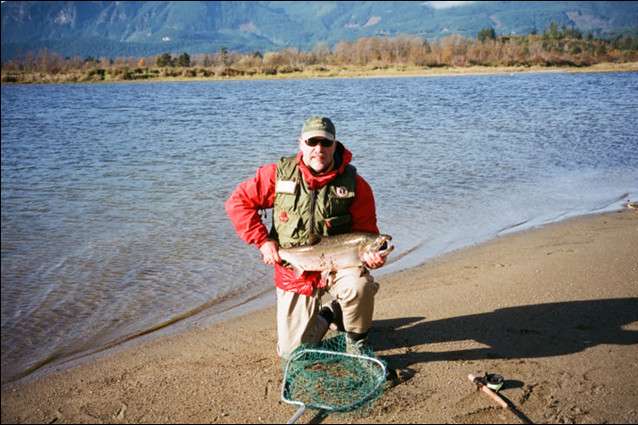Salmon genome collaboration published in Nature

SFU professor Willie Davidson is part of an international research team shedding new light on genome evolution. The researchers have established a "human" quality sequence of the Atlantic salmon genome that is now available online. Their work has been published in the prestigious journal Nature.
According to the researchers, the Atlantic salmon genome is 2.97 gigabases in size and contains 37,000 genes across 29 chromosomes, and is similar in size to the human genome. This latest work means technologies developed for humans can be applied to wild and farmed salmon around the world.
"The Atlantic salmon's genome has already enabled a refinement of the rainbow trout genome and is providing a framework for sequencing and assembling the genomes of other salmonids, such as Coho salmon and Arctic char," says Davidson, a professor in SFU's Department of Molecular Biology and Biochemistry. "The completion of the Atlantic salmon's genome allows this species to take its place beside domesticated animals (e.g., cattle, sheep, pig, chicken) whose genomes are being used routinely to enhance livestock production."
The team characterized a Whole Genome Duplication (WGD) event, or mutation, that occurred in 80 million years ago, the fourth in the salmonid lineage, and studied the implications of the salmonid's unique capacity to double its genes, enabling them to dramatically expand the interaction of genes and their environment.
While they found the salmonid genome is returning to its original stage following a period of genomic instability, some traces of duplication remain today.
"The Atlantic salmon genome provides insights into rediploidization" was the result of collaboration between Davidson and the University of Victoria's Dr. Ben Koop, working as part of an international project involving experts from Canada, Chile and Norway. The project is supported by the International Cooperation to Sequence the Atlantic Salmon Genome (ICSASG).
The research provides a reference genome sequence and an atlas of genes that gives a whole new scientific baseline from which to improve and understand fisheries, conservation, ecology, physiology, evolution and aquaculture for over 70 economically, culturally and environmentally important salmonid species.
The published research ensures that salmon genes, and opportunities for sustainable farming and wild salmon management, are just a mouse click away.
"This publication is a testament to the successful partnership of the ICSASG: they have unravelled the extreme complexity of this species' genome, generated significant amounts of new knowledge and addressed many technological hurdles" says Dr. Alan Winter, President and CEO of Genome British Columbia. "The collaboration leaves behind a legacy that will benefit research and sustainable development of this economically and environmentally important species in Canada, Norway and Chile and other countries for years to come."
More information: Sigbjørn Lien et al. The Atlantic salmon genome provides insights into rediploidization, Nature (2016). DOI: 10.1038/nature17164
Journal information: Nature
Provided by Simon Fraser University


















